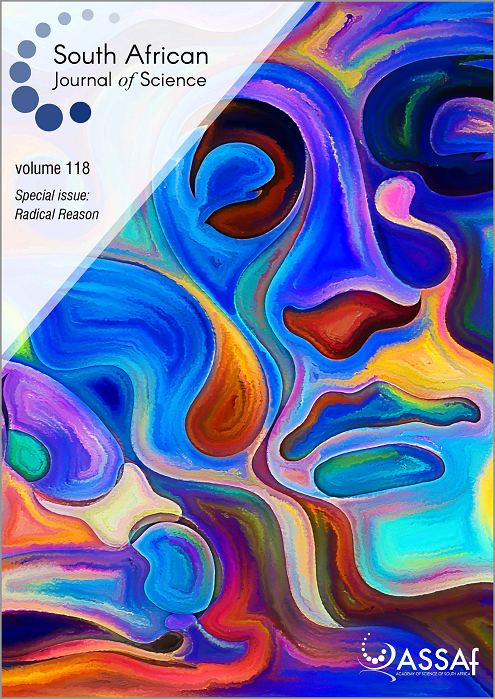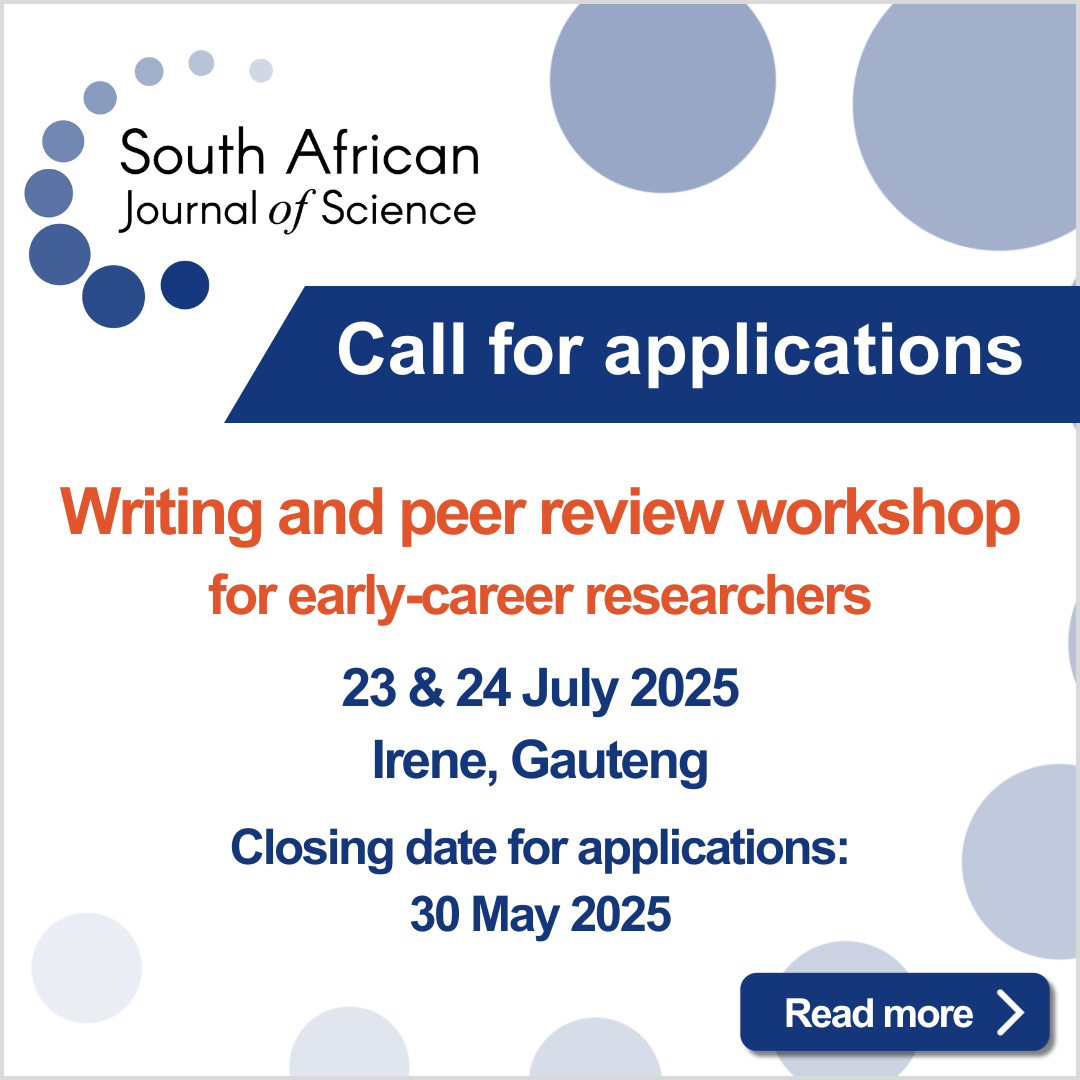Paradigm shifts for a planetary emergency: Towards an anthropocenography for urban coastal research at False Bay, Cape Town, South Africa
DOI:
https://doi.org/10.17159/sajs.2022/12552Keywords:
transdisciplinarity, False Bay, contamination, environmental humanities, environmental social sciences, urban ocean, AnthropoceneAbstract
Reflecting on a recent three-decade review of the social-ecological sciences of False Bay in Cape Town that was co-authored by 32 South African based scientists, this essay draws on current Anthropocene scholarship in the environmental humanities and social sciences to suggest four approaches to strengthening transdisciplinarity engagement between social and natural sciences. First, the material flows between the fields categorised as ‘nature’ and ‘society’ is suggested as an alternative empirical base for integrative transdisciplinary research, building on emergent transdisciplinary fields including industrial ecology, biogeochemical sciences, circular economics and critical zone scholarship. Second, a humanities-informed conversation in South African scholarship invites discussion as to whether and how the conceptual categories of nature and society remain empirically useful, given the evidence in Anthropocene stratigraphy that human living is terra-forming. Third, humanities scholarship is vital for the scholarly assessment of historical and contemporary data sets and scientific publications. Fourth, the theorisation of ‘social systems’, ‘the human’, ‘society’, and ‘ecosystem services’ in the social-ecological approaches represented in the review, create a barrier for social scientists to take up invitations to transdisciplinary research partnerships. The above concerns, taken together, frame an alternative approach to transdisciplinary research that is tentatively suggested as an ‘anthropocenography’: a research paradigm based on material flows in the Anthropocene.
Significance:
Innovations in transdisciplinary research that attend to material flows are evident in multiple emerging fields that address the Anthropocene, including biogeosciences, industrial ecology, urban metabolism, circular economies, and critical zone sciences. Responding to a 30-year review of the sciences of False Bay, I argue that these new research fields, which encompass earth sciences, biosciences and applied sciences, offer generative linkages to emerging scholarship in environmental social sciences and humanities that also attend to material flows. Linking social and natural sciences via material flows is therefore suggested as a generative approach to transdisciplinarity.
Downloads
Published
Issue
Section
License

All articles are published under a Creative Commons Attribution 4.0 International Licence
Copyright is retained by the authors. Readers are welcome to reproduce, share and adapt the content without permission provided the source is attributed.
Disclaimer: The publisher and editors accept no responsibility for statements made by the authors
How to Cite
- Abstract 909
- PDF 693
- EPUB 260
- XML 258
- Supplementary material 215













.png)